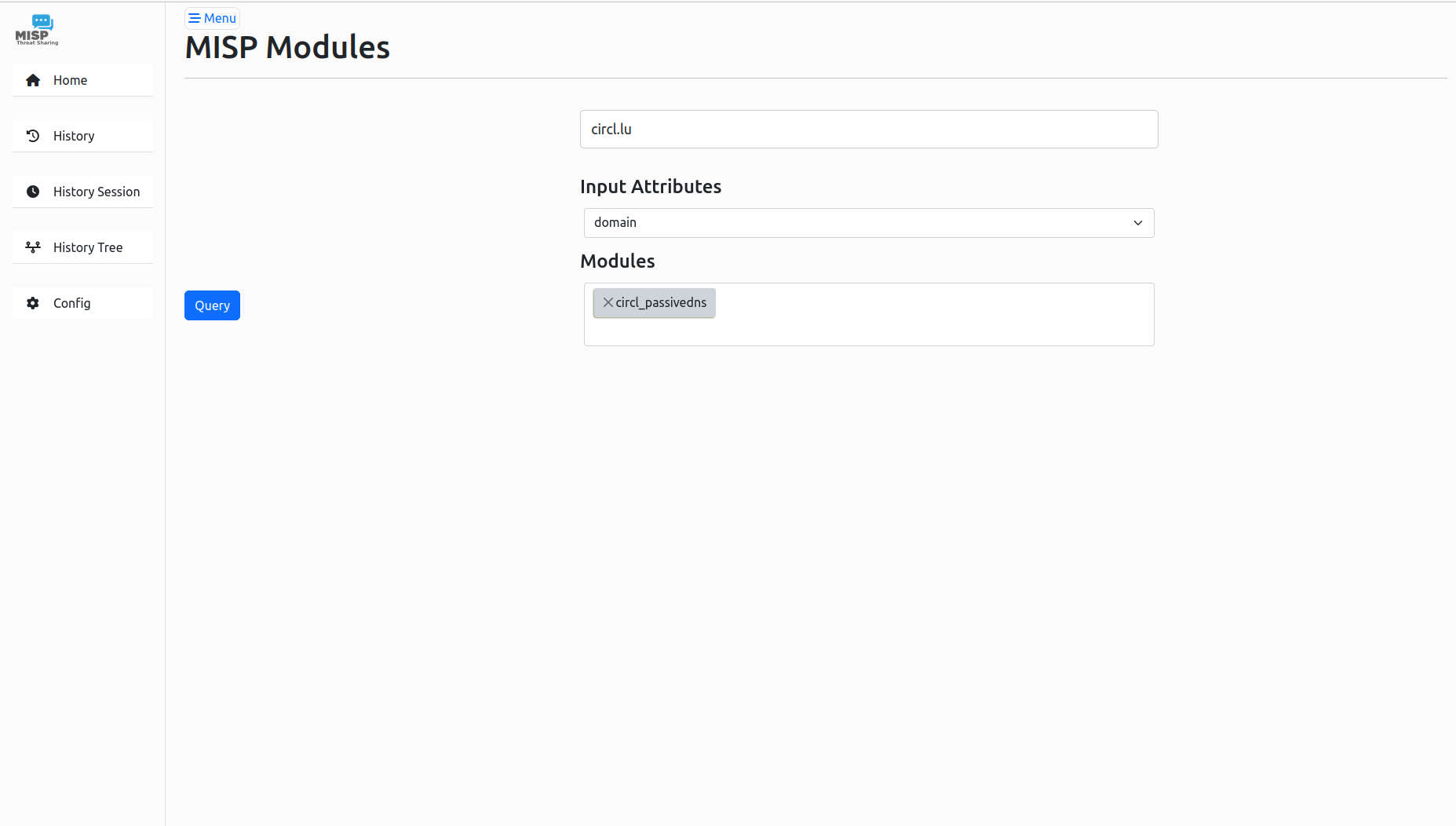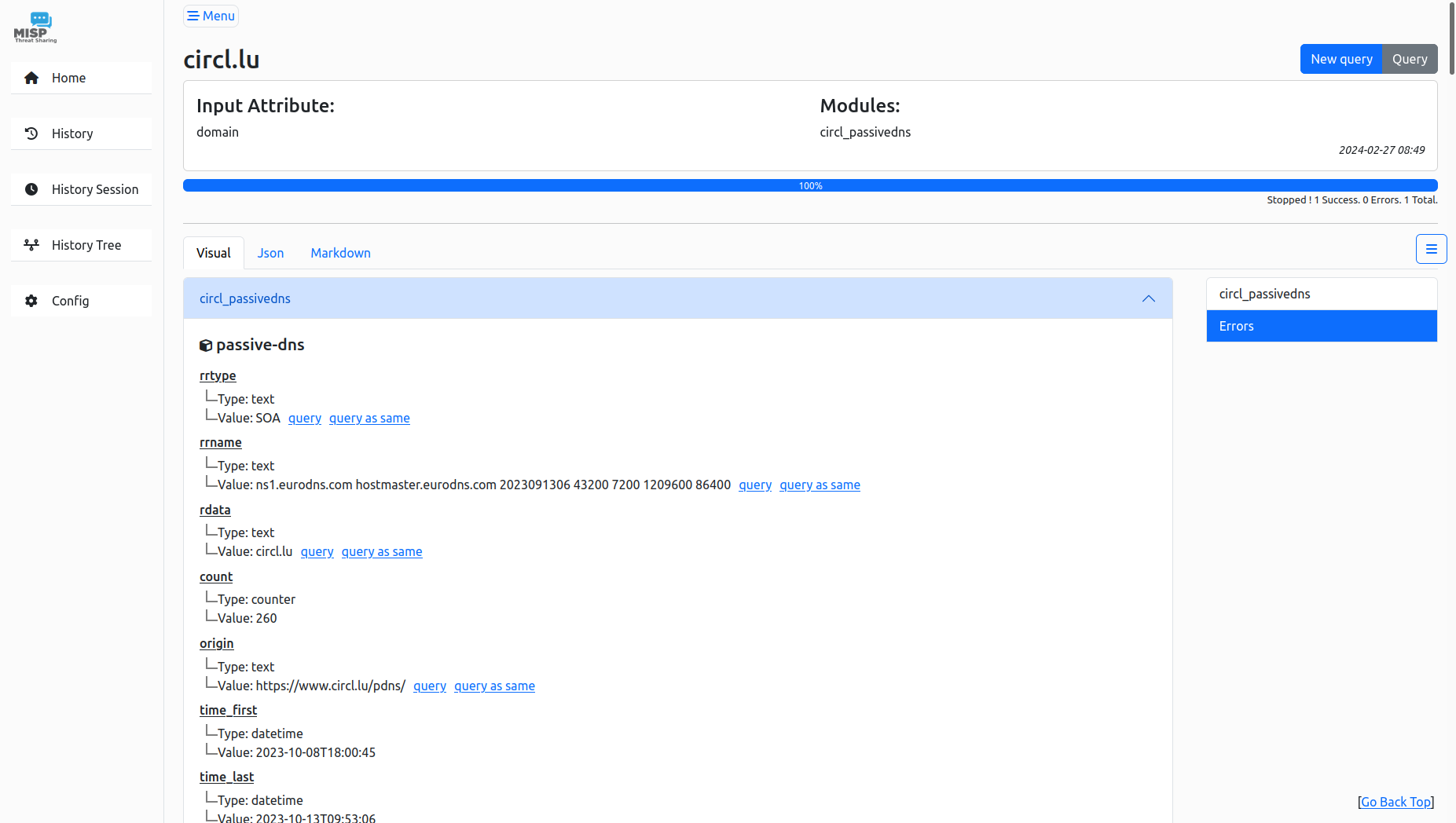mirror of https://github.com/MISP/misp-modules
55 lines
1.4 KiB
Markdown
55 lines
1.4 KiB
Markdown
# MISP-module website
|
|
|
|
Use all modules with a dedicate website without any MISP
|
|
|
|

|
|
|
|

|
|
|
|
## Installation
|
|
|
|
**It is strongly recommended to use a virtual environment**
|
|
|
|
If you want to know more about virtual environments, [python has you covered](https://docs.python.org/3/tutorial/venv.html)
|
|
|
|
```bash
|
|
sudo apt-get install screen -y
|
|
pip install -r requirements.txt
|
|
git submodule init && git submodule update ## Initialize misp-objects submodule
|
|
python3 app.py -i ## Initialize db
|
|
```
|
|
|
|
Don't forget to install **misp-modules**...
|
|
|
|
## Config
|
|
|
|
Edit `config.py`
|
|
|
|
- `SECRET_KEY`: Secret key for the app
|
|
|
|
- `FLASK_URL` : url for the instance
|
|
|
|
- `FLASK_PORT`: port for the instance
|
|
|
|
- `MISP_MODULE`: url and port where misp-module is running
|
|
|
|
- `ADMIN_USER`: If True, config page will not be accessible
|
|
|
|
- `ADMIN_PASSWORD`: Password for Admin user if `ADMIN_USER` is True
|
|
|
|
Rename `config.cfg.sample` to `config.cfg` then edit it:
|
|
|
|
- `ADMIN_USER`: If True, config page will not be accessible
|
|
|
|
- `ADMIN_PASSWORD`: Password for Admin user if `ADMIN_USER` is True
|
|
|
|
## Launch
|
|
|
|
```bash
|
|
./launch.sh -l
|
|
```
|
|
|
|
## Admin user
|
|
|
|
If admin user is active, type `/login` in url to access a login page and type the password wrote in `config.py` in `ADMIN_PASSOWRD`.
|